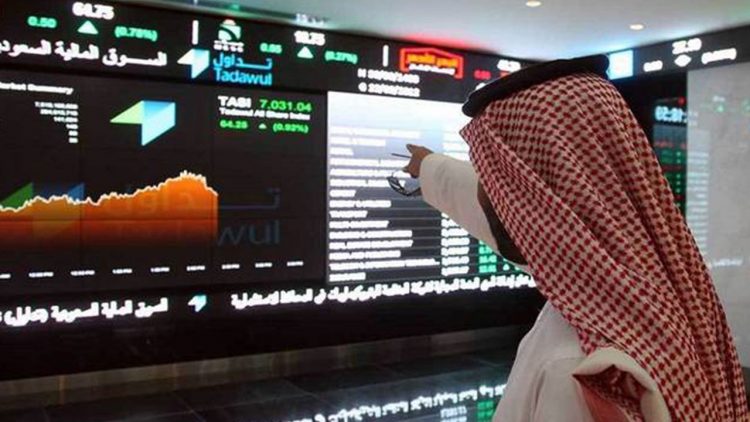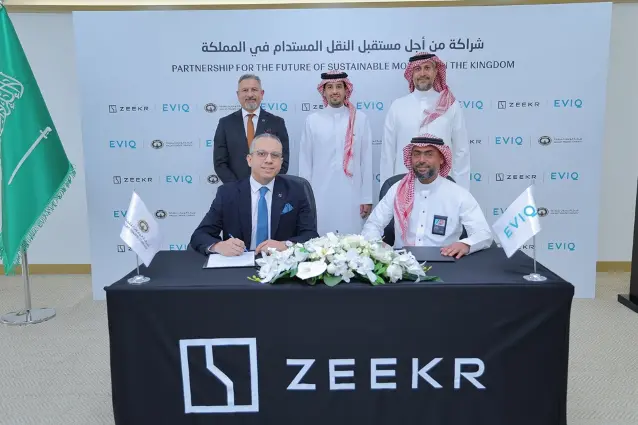Publisher: Maaal International Media Company
License: 465734
EY report: Saudi Arabia once again leads regional activity in the IPO market
According to the EY MENA IPO Eye Q3 2021 report, the MENA region saw four IPOs raise total proceeds of US$1.836b during Q3 2021 – a 1,483% increase in value on Q3 2020.
The number of IPOs increased from one in Q3 2020, representing a 300% surge. The YTD total number of IPOs stands at eight in the MENA region so far this year, with a combined value of US$2.261b. Direct listings continued their momentum with seven such listings occurring during Q3 2021.
The four IPOs in Q3 2021 were Al Yah Satellite Communications Company (Yahsat), Tanmiah Food Company (Tanmiah), Mataam Bayt AlShatira Lilwajbat Alsariya Company (Burgerizzr) and Arabian Internet and Communications Services Company (Solutions by stc). The Yahsat listing is the first IPO to occur on the Abu Dhabi Securities Exchange (ADX) since 2017, raising US$730.6m by offering 40% of its shares. The offering was oversubscribed multiple times, with Mubadala continuing to retain a circa 60% shareholding in the company.
اقرأ المزيد
Equity markets have also had an exceptional year so far, with the ADX continuing to be the top performer with a YTD return of 52.6%. Saudi Arabia’s Tadawul is the second-best performing MENA market with a YTD return of 32.3%.
Saudi Arabia lists three IPOs in Q3 2021
During Q3 2021, Saudi Arabia once again led activity in the IPO market within the region. In August 2021, Tanmiah was listed on the Tadawul, raising US$107.2m by offering 30% of its shares. Burgerizzr also concluded its IPO on the Nomu–Parallel Market and raised US$31.8m. Solutions by stc, a unit of the Saudi Telecoms Company, raised US$966.4m in its IPO on the Tadawul.
Saudi Arabia’s Capital Market Authority (CMA) announced the approval of three IPOs on the Nomu–Parallel Market: Al Hasoob Trading Company, Group Five Pipe Saudi Company and Jahez International Company for Information and Technology. It also approved the direct listing of Enma Al-Rawabi Company on the Nomu-Parallel Market. In addition, Almunajem Foods Company, East Pipes Integrated Company for Industry and Nayifat Finance Company all received approvals for their IPOs on Tadawul’s main market.
The Ministry of Finance (MoF) issued its pre-budget statement for FY22 in which it stated that initial forecasts indicate growth in real GDP in KSA of 7.5% in 2022. This is in addition to growth in the oil sector, driven by the anticipated increase in the KSA’s production starting in May 2022, according to the OPEC+ agreement, and also by the stabilization in global demand and improvement in global supply chains, which would reflect positively on the domestic economy.
Widespread regulatory changes
The Q3 2021 saw a series of notable regulatory changes with Qatar amending its Commercial Companies Law, while the ADX and Dubai Financial Market (DFM) extended their trading hours and waived the minimum commission fee on trades for all listed securities. The Capital Market Authority of Saudi Arabia approved three IPOs and one direct listing on the Nomu–Parallel Market. In addition, three IPOs on the main market received approvals.
Matthew Benson, EY MENA Strategy and Transactions Leader, says: “During Q3 2021, the number of IPOs increased 300% as compared to Q3 2020, when there was only one IPO on the MENA markets, with proceeds increasing 1,483% compared to Q3 2020. This brings the total number of IPOs YTD in 2021 to eight, with total proceeds of US$2.3b. As MENA economies rebound from the pandemic and oil prices remain favorable, companies with strong fundamentals continue to receive ample investor interest and the pipeline of IPO candidates is ever increasing. At EY, we continue to work closely with MENA companies to support them on this transformational journey to go public, which starts many months and often years ahead of their IPO journey.”
Gregory Hughes, EY MENA IPO and Transaction Diligence Leader, says: “The MENA IPO market activity has picked up in Q3 2021 with four listings raising a total of US$1.8b in proceeds. KSA and Abu Dhabi are leading the IPO activity and continue to have a strong pipeline for the coming quarters, while activity in Dubai continues to lag. We have also seen the re-emergence of larger IPOs, which have been met with solid investor interest, further demonstrating the ample liquidity that is currently available in the market. Around the world, however, we are seeing IPOs being pulled or delayed in multiple markets due to the large number of offerings looking for investment, so we need to remain vigilant in this region as the pipeline grows.”
ESG mandates may block access
Notably, the ESG context is rapidly evolving globally across the MENA region – and MENA policy is broadly keeping pace with investor sentiment. Institutional investors are raising the stakes when it comes to assessing company performance using ESG factors. Right across the region, Q3 2021 saw a flurry of announcements relating to new ESG mandates.
In the UAE, the Securities and Commodities Authority (SCA) has made it mandatory for listed companies to publish an annual sustainability report. Several MENA stock exchanges such as the Abu Dhabi Stock Exchange, Dubai Financial Market, Boursa Kuwait and the Bahrain Bourse have issued their own ESG reporting guidelines and many MENA exchanges have launched awareness campaigns for their listed companies on the importance of ESG. The latest announcement on ESG is from the Saudi Exchange, which published its disclosure guidelines to help further advance ESG disclosures in the Saudi capital markets.
As MENA companies look to raise capital in the public markets, the lack of a strong sustainability strategy and ESG disclosure can create a value gap. After going public, companies continue to face scrutiny on their ESG disclosures from third-party ratings and rankings agencies. Hence, a lack of focus on ESG disclosures may create a gap in meeting stakeholder demands and expectations.
For IPO candidates, ESG forms an integral part of their equity story, and a clear strategy can help to attract a larger pool of investors as part of the IPO process and have an impact on the company’s valuation. The ESG agenda is becoming ever more important for investors and regulators alike and companies in the region should ensure they are not lagging.
Related








